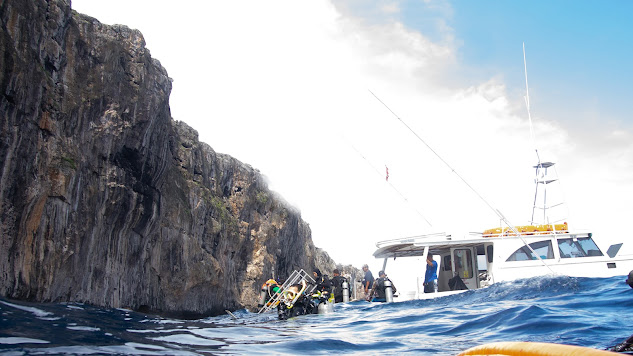So you got your scuba certification? Now what?
Congratulations on earning your new SCUBA certification. Now what? Here are some suggestions to consider right after your open water certification.
Get a DAN insurance diving insurance.
As a scuba diving enthusiast, I can provide you with three
reasons why a new scuba diver should consider getting DAN (Divers Alert
Network) insurance:
- Medical
coverage: Scuba diving involves certain risks, and accidents can happen.
DAN insurance provides medical coverage for diving-related injuries, which
can be costly without insurance. This coverage can help alleviate the
financial burden of medical treatment, including hyperbaric chamber
treatments, which can be very expensive.
- Emergency
assistance: In the event of an emergency, DAN provides a 24/7 emergency
hotline that connects you to their trained professionals who can offer
advice and coordinate emergency medical transportation if necessary. Having
this assistance readily available can be invaluable in a potentially
life-threatening situation.
- Dive-travel
coverage: If you're planning a scuba diving trip, DAN insurance offers
travel insurance that covers dive-related trip cancellations or interruptions,
lost or stolen equipment, and other unexpected expenses. This coverage can
help protect your investment in the trip and give you peace of mind during
your travels.
Overall, DAN insurance offers comprehensive coverage for
scuba divers and can be particularly valuable for new divers who may not have
as much experience with the sport. Also if you are interested you can read more about DAN in our past blog post.
Dive Dive Dive.
Before planning any big dive like going to the Australia's great barrier reef, a drift dive at Mexico's Santa Rosa Wall or jumping out of boat. First consider getting more dives under your belt.
1. Do progressive dives increasing gradually the dive difficulty, try doing pattern and finding objects this will help you with your location and situational awareness.
2. Try diving locally at different times, you will learn to deal with tides and currents since at different times you will experience different conditions in the water.
3. Try no fins training. Have you ever try to practice your buoyancy and trim skills with no fins? Doing these skills without fins is not only challenging but having fins is like having training wheels on your bike, once you try this you will soon realize how much we as SCUBA Divers depend on our fins to be stable underwater, stability comes from your core nor from your fins or equipment taking in consideration your equipment is properly fitted for your body.
Get familiarized with the Boat's etiquette.
Before even considering booking a trip with a boat you should be familiarized with the best practices and boat's etiquette, this will make you look apart from the new divers.
1. Ask the Captain or the Crew Members for their rules and best practices.
2. Don't be that guy... Don't be in the middle, or touching everyone's equipment as you may know by now, all SCUBA equipment is expensive, it is life support equipment and it has special configurations for that specific diver and just touching someone's computer could put that diver in great risks.
3. Don't be afraid to ask but ask at the right time. Everyone on the boat is there because they love and enjoy they same sport and people are always willing to share their knowledge, if you want to know more about someone's equipment or techniques just ask kindly once everyone is set preferably after the dock briefing and before getting to the dive site because those are the busiest moments on the dive and you don't want to disrupt anyone at that time.
Read some books.
SCUBA Diving is a complex sport way more complex that you could wrap your head around, so having some extra information in your brain will expand your vision and perception of what SCUBA Diving is all about.
1. SCUBA Diving can be a tool for Scientist or for archeologists as a scuba diver you will have tons of options when it comes to expand your certification path.
2. Having a few books in your collection will give you new language and topic to explore with your SCUBA Diving friend.
3. Extra knowledge that you will not get in your regular SCUBA class. Since SCUBA Diving is a big topic your scuba instructor has a limited time to cover all the basics of the particular course, but there is a lot more to learn so go ahead an pick a new book.
In conclusion, before planning any big trip get your new acquired skills sharpen, expand your knowledge and your comfort in the water, next time you hit your dream destination you will be looking like a well rounded diver.

Comments
Post a Comment